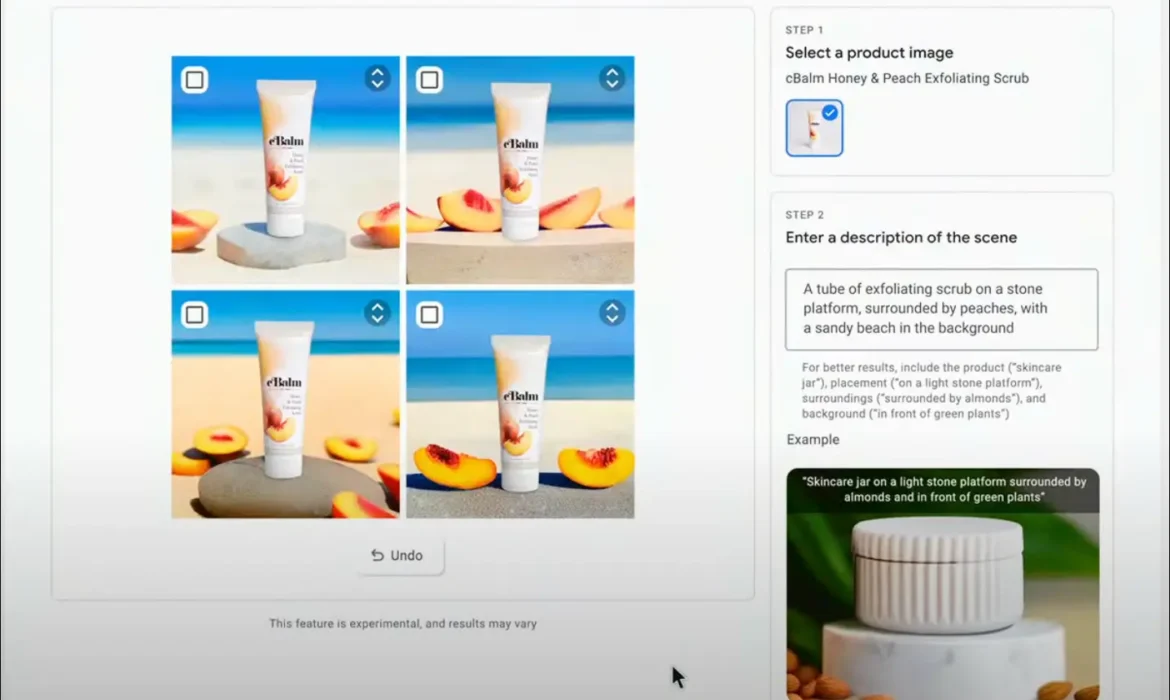Google Cloud Introduces New Generative AI Tools for Retailers
On the eve of the annual convention of the National Retail Federation, Google unveiled several new generative AI tools intended to improve the online shopping experiences and other retail operations of retailers. The tools make use of artificial intelligence technologies that are generative. They are made to make the implementation of chatbots and AI easier, enhance search, and produce more customized shopping experiences. One of these new products is an AI-powered chatbot that merchants can incorporate into their mobile apps or websites.
The most recent illustration of generative AI’s expanding impact in the retail sector is found in Google Cloud’s products. Retailers can modernize operations, personalize online shopping, and change in-store technology rollouts with the aid of these generative AI-powered technologies. These virtual representatives can converse with clients and make recommendations for products based on their likes.
Google Cloud unveils new generative AI tools for retailers
In addition, tools for improving retailers’ customer support systems and streamlining their product cataloging procedures are included in Google’s recently released AI products. In addition to e-commerce, physical stores are receiving new artificial intelligence capabilities via Google Distributed Cloud Edge, an already available hardware and software package.
All these areas seem to have a great deal of room for improvement. After using virtual assistants, only about one-third of customers are happy with them, and almost 20% say they wouldn’t use them again. Customers are still very interested in using AI, though. Eighty percent of those who haven’t used the technology for shopping would like to give it a try. The majority, or five9%, would like to use AI applications while they shop.
Read More: Imagine Communications Join Forces with Google Ad Manager
New generative AI tools
Google’s offerings are aimed squarely at these issues. The new tools include:
Conversational Commerce
Similar to brand-specific ChatGPT, Conversational Commerce facilitates the joining of chatbots on websites and mobile apps. The salespeople converse with customers in plain language and make customized product recommendations depending on each person’s preferences. When it comes to products, they can have “helpful and nuanced” conversations with customers. Moreover, it offers recommendations based on their preferences.
Catalog and content Enrichment toolset
Google Cloud’s new Catalog and Content Enrichment toolset, which uses GenAI models—including the previously mentioned PaLM and Imagen—to automatically generate product descriptions, metadata, categorization suggestions, and more from as little as a single product photo, complements the Conversational Commerce Solution. Additionally, retailers can use the toolset to create new product images from pre-existing ones. Furthermore, it can also leverage product descriptions as the foundation for AI-generated product images.
For example, when a customer is looking for a formal dress for a wedding, a virtual agent can talk to them and offer customized product options based on their preferences for colors, the type of venue, the weather, complementary accessories, and price range. Importantly, rather than taking months, retailers can use these advanced conversation AI agents in a matter of weeks. This new solution can be integrated into a retailer’s current catalog management software or run on the Vertex AI platform on Google Cloud.
Read More: Google’s Third-Party Cookies Deprecation Rolls Out Today
Vertex AI
Additionally, Vertex AI Search for retail, a product from Google Cloud, has a new LLM capability. It provides retailers with natively embedded Google-quality search, browse, and recommendation capabilities on their unique product catalog and shopper search patterns. With the addition of new large language model (LLM) capabilities, Vertex AI Search enables sellers to tailor an LLM to their specific catalog and the search habits of their customers. By better ranking possible products as a fit for any given search term, it can give users more relevant search results.
Customer Service Modernization
Customer Service Modernization combines chatbots with an existing retailer’s CRM data. It enhances self-service, recommends products, sets up appointments, monitors order status, and more.
Google Distributed Cloud Edge
To lower IT expenses and resource commitments related to retail GenAI, Google unveiled the Google Distributed Cloud Edge. It is a managed self-contained hardware kit designed specifically for retailers. It is intended to facilitate retailers’ use of AI in places with spotty or nonexistent internet. Store analytics, frictionless checkout, and streamlined mission-critical store operations are currently its main use cases. The edge cluster, which powers customers’ GenAI apps, is said by Google to be compatible with a variety of retail spaces, including convenience stores, gas stations, fast-casual restaurants, and grocery stores. It comes in a range of sizes, from single-server to multi-server configurations.
Here’s what they said
Carrie Tharp, vice president of Strategic Industries, Google Cloud said,
In only a year, generative AI has morphed from a barely recognized concept to one of the fastest-moving capabilities in all of technology and a critical part of many retailers’ agendas. With the ability to accelerate growth, boost efficiency, fuel innovation, and reduce toil, generative AI solutions are ready to be deployed now, and Google Cloud’s recent innovations can help retailers recognize value in 2024.
Read More: Google Launches Google Ads Data Manager for First-Party Data
Author Profile

- Netra
- Netra is a Dual Masters graduate in International Business and Marketing. She is a content-writing enthusiast and a social media addict. In her downtime, you will find her headbanging to Pop songs from around the world. She is also a sports fanatic and especially loves F1, Volleyball, and Cricket. Her hobbies are baking and watching Anime.
Latest Posts
 MediaJuly 26, 2024Rediffusion Unveiles Konjo, a Specialist Agency for New Age Startups
MediaJuly 26, 2024Rediffusion Unveiles Konjo, a Specialist Agency for New Age Startups MediaJuly 26, 2024Farah Golant Joins Seedtag Board of Directors
MediaJuly 26, 2024Farah Golant Joins Seedtag Board of Directors MediaJuly 26, 2024PRCA MENA Announces Imad Lahad as Vice Chair of the Board
MediaJuly 26, 2024PRCA MENA Announces Imad Lahad as Vice Chair of the Board MarketingJuly 26, 2024Google Shelves its Plans to Remove Third-Party Cookies | Experts Speak
MarketingJuly 26, 2024Google Shelves its Plans to Remove Third-Party Cookies | Experts Speak










